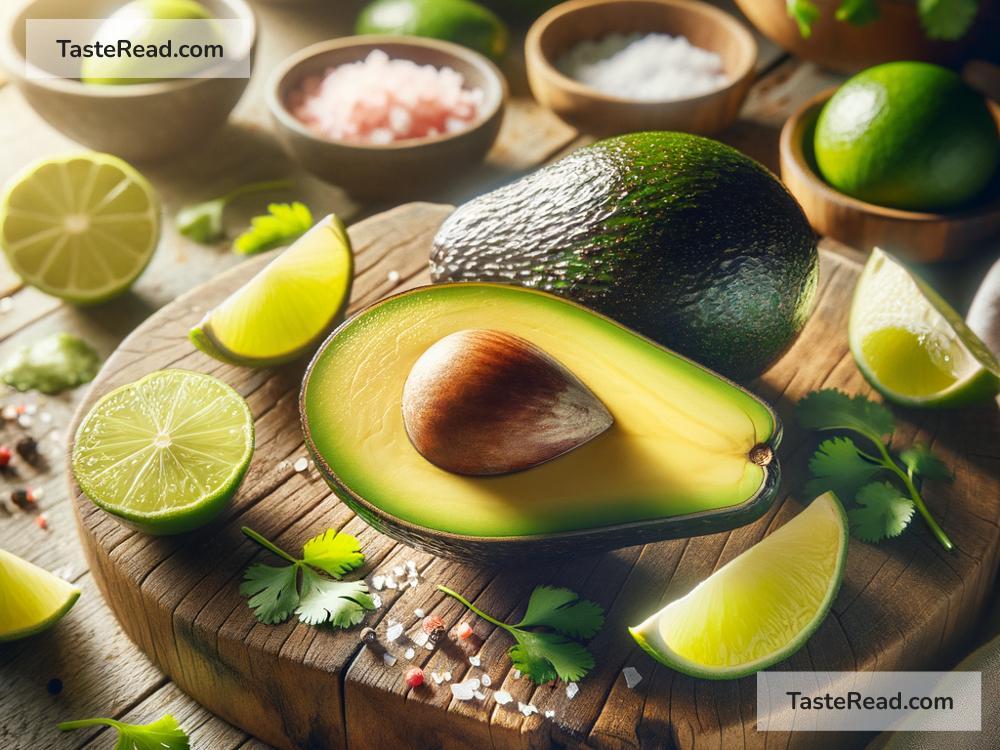Why Avocados Are Packed with Healthy Fats
When you think of a food that’s creamy, delicious, and good for your health, avocados probably come to mind. These green fruits have become incredibly popular in recent years, showing up in salads, sandwiches, smoothies, and, of course, the ever-famous avocado toast. But aside from their tasty appeal, avocados are also known for being rich in healthy fats. What makes avocados so special, and why are these fats good for you? Let’s break it down in simple terms.
What Are Healthy Fats?
Before diving into avocados, let’s talk about fats. Many people think of fat as something to avoid, but the truth is, not all fats are bad for you. In fact, our bodies need fat to function properly. Fats provide energy, help absorb certain vitamins, support cell growth, and protect your organs.
There are three types of fats:
- Unhealthy fats: These include trans fats and some types of saturated fats, which can increase your risk of heart disease when eaten in excess.
- Healthy fats: These include unsaturated fats, which are beneficial for heart health and overall well-being.
- Neutral fats: Some saturated fats may not be as harmful as once thought, but they’re still best eaten in moderation.
Avocados are packed with healthy unsaturated fats, specifically monounsaturated fats, which are great for your health.
Why Do Avocados Contain So Much Fat?
Avocados are unique compared to most fruits. While fruit like apples, oranges, or bananas are full of natural sugars and carbohydrates, avocados are primarily composed of fats. This is because of the plant’s biology and the way the fruit develops.
Avocado trees grow in warmer climates, and the fruit’s fat content helps it store energy and withstand heat better. Unlike fruits that prioritize sugar for energy storage, avocados evolved to prioritize fat—and lucky for us, it’s the healthy kind.
Types of Healthy Fats in Avocados
The main type of fat in avocados is monounsaturated fat, which is considered a powerhouse nutrient for heart health. This type of fat helps lower bad cholesterol levels (LDL) and increase good cholesterol levels (HDL), reducing the risk of heart disease.
Avocados also contain a small amount of polyunsaturated fats, which are another category of healthy fats. These fats play a crucial role in brain function and help reduce inflammation in the body.
Why Are Avocado Fats Good for Your Body?
Now that we know avocados contain healthy fats, let’s look at how these fats benefit your body:
-
Heart Health: Monounsaturated fats in avocados can help protect your heart. They lower bad cholesterol and improve overall blood circulation. When your heart is healthier, your risk of heart attack, stroke, and other cardiovascular diseases decreases.
-
Improved Energy Levels: Fats serve as a concentrated source of energy. The fats in avocados are slowly digested, providing sustained energy without the sugar spikes and crashes that come with processed snacks.
-
Better Nutrient Absorption: Vitamins like A, D, E, and K are “fat-soluble,” meaning your body needs fat to absorb them. Eating avocados alongside other healthy foods (like vegetables) helps your body soak up these vitamins.
-
Brain Health: Your brain loves healthy fats! The fats in avocados help maintain your brain cells and support cognitive function (thinking, memory, learning). Including avocados in your diet may even reduce the risk of age-related mental decline.
-
Anti-Inflammatory Properties: Chronic inflammation contributes to diseases like arthritis, diabetes, and even cancer. The omega-3 fatty acids and polyunsaturated fats in avocados help lower inflammation in the body, keeping you healthier in the long run.
-
Skin Glow: When you eat healthy fats like those in avocados, your skin and hair benefit too! Avocado fats help keep your skin hydrated and smooth, giving it that natural glow.
How to Add Avocados to Your Diet
So, now that you know why the fat in avocados is so healthy, how can you enjoy them? Luckily, avocados are super versatile:
- Spread mashed avocado on whole-grain toast for a quick breakfast or snack.
- Add avocado chunks to your salads for extra creaminess.
- Make guacamole by mixing avocado with lime juice, a pinch of salt, and diced tomatoes.
- Blend avocado into smoothies for a creamy texture.
- Use avocado as a topping for soups, tacos, or even burgers.
- Substitute avocado for butter or oil in baking recipes for a healthier twist.
Are Avocados Good for Everyone?
While avocados are a fantastic source of healthy fats, they’re also calorie-dense. A single avocado can contain around 250-300 calories depending on its size. This means it’s important to enjoy them in moderation, especially if you’re watching your calorie intake.
However, for most people, including avocados in their diet is a smart choice. Whether you eat them daily or just a few times a week, their health benefits are undeniable.
Conclusion
Avocados are more than just a trend—they’re a nutritional powerhouse! Their healthy fats help your heart, brain, and overall well-being. So, the next time you enjoy guacamole or avocado toast, remember that you’re feeding your body with good-for-you fats. Embrace the avocado love and make it a staple part of your balanced diet—it’s a small change that can make a big difference to your health.


